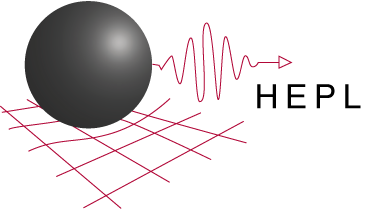News & Events
HEPL Seminar
John Anderson, PhD
Professional astronomer and NASA Co-Investigator
Anomalistic Solar-System Dynamics
Abstract: It has been known for 10 years that two Pioneer spacecraft are mysteriously slowed as they follow escape trajectories on opposite sides of the solar system. Now a recent study by Anderson et al. in the 7 March 2008 issue of Physical Review Letters reveals that four spacecraft on slingshot trajectories about the Earth are also anomalous. They are either slowed or speeded up as they encounter the Earth. The amount of the velocity change is only about one part per million of the total flyby velocity, but it is easily detectable.
It seems that all is not well with solar system dynamics. In addition to the Pioneer anomaly and the Earth flyby anomaly for spacecraft, there are anomalies in the Moon's orbit amounting to about 6 millimeters per year, and the length scale for the entire solar system, the astronomical unit, is increasing at a rate of about seven centimeters per year, effectively increasing the gravitational attraction of the Sun. Although it is suspected that all these anomalies have mundane explanations, no source has been unambiguously identified for any of them so far.
Biography: John Anderson retired from JPL in August 2006. However, he is still working as a professional astronomer. He holds NASA Co-Investigator roles on Cassini at Saturn, Rosetta to the comet 67 P/Churyumov- Gerasimenko in 2014, and the JUNO polar orbiter of Jupiter in 2017, all good candidates for some interesting gravity science with DSN and ESA radio Doppler observations in the X-Band (~ 8 GHz) and Ka-Band (~ 32 Ghz). He also maintains an interest in experimental gravitational physics in space. He holds a PhD in astronomy from UCLA and is a Fellow of the American Geophysical Union (AGU).
Location: Physics/Astrophysics Building, Conference Rooms 102 & 103
Wednesday, May 7, 2008, 2:00pm - 3:30 pm
Light refreshments available 2pm; Presentation begins 2:15pm. Open to all.
Join our HEPL Seminar Mailing list!
Send an email to majordomo@lists.stanford.edu and type
subscribe heplseminars user@stanford.edu
in the body of the message where user@stanford.edu is your email address
You will receive an email confirmation. We hope to see you at a HEPL Seminar soon.


